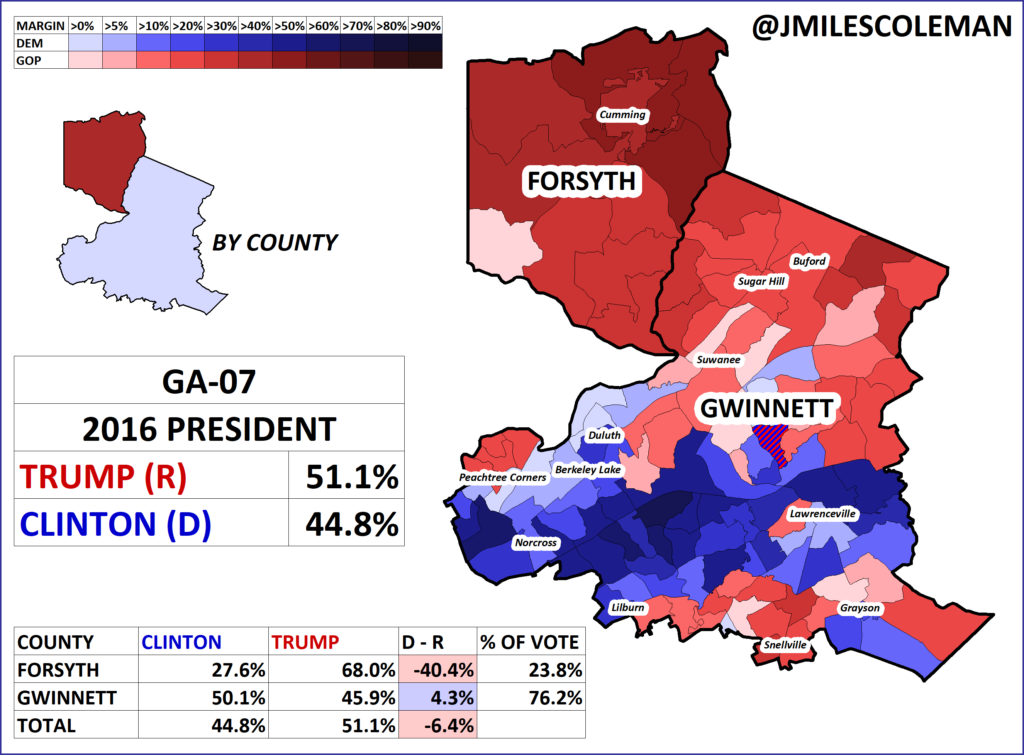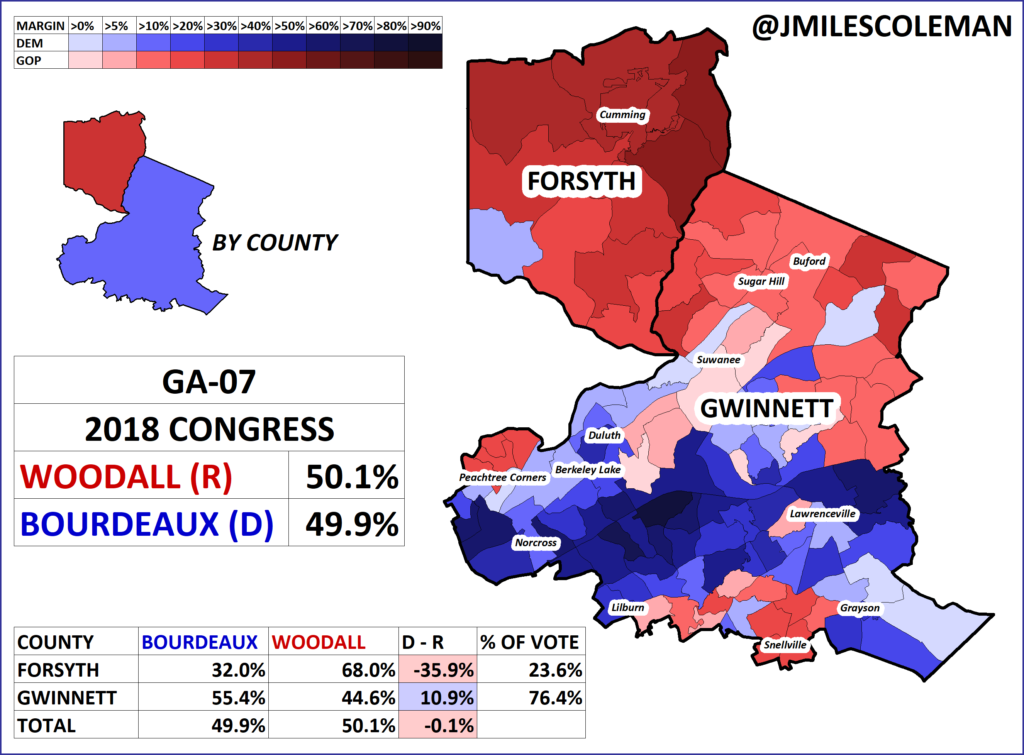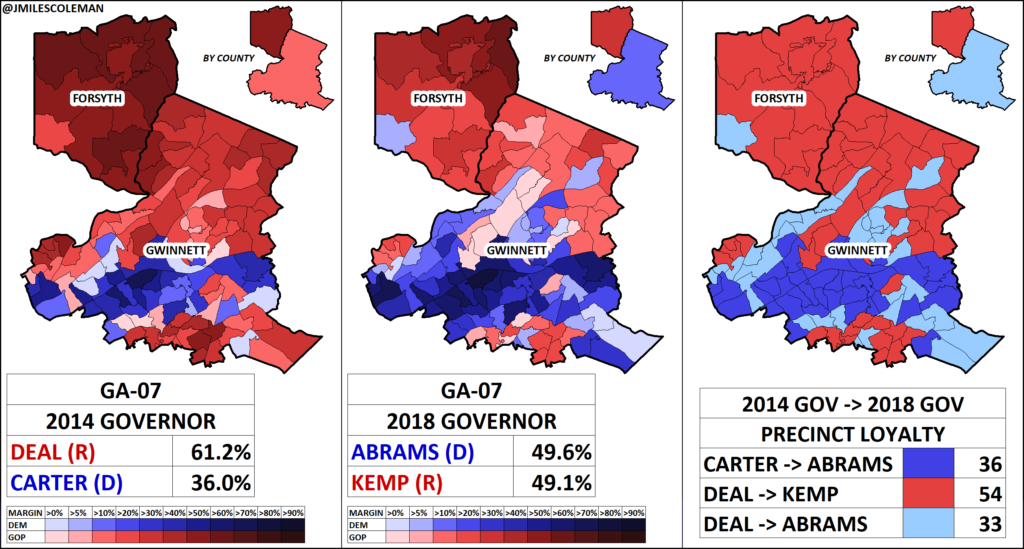Each election cycle brings a new round of Congressional retirements, and this time around is looking to be no different. Last week, we had an early announcement, from Rep. Rob Woodall (R) of Georgia’s 7th District.
Initially elected to the House in 2010, Woodall won by comfortable margins until last year. The Atlanta suburbs – where his district is based – have been moving in the Democratic direction for years. In 2018, that trend almost caught up with him; he held on by just 419 votes against first-time candidate Carolyn Bourdeaux (D). It’s not unusual for incumbents who had close calls in tough seats to retire the next cycle; former members like Mike McIntyre (who held his red-trending NC-07 by 654 votes in 2012 and retired in 2014) and Darrell Issa (who won by 1,632 votes in CA-49 in 2016 and retired for 2018) come to mind.
Going back to the last Presidential election in 2016, President Trump carried the district by 6%:

While Trump carried the district, GA-07 still has something of a split personality. 76% of the votes come from Gwinnett County. Once a strongly Republican county, Gwinnett has experienced explosive population growth in the past few decades, and is now essentially a must-win county for statewide Democrats in Georgia. The bulk of Gwinnett is in the 7th District, and this area went to Clinton by 4%. The other 24% of GA-07 comes from a portion of Forsyth County; this area is much whiter and has largely held its historically (at least post-1970’s) deep red lean. While Trump still underperformed the Republican baseline there, his 40% margin allowed him to carry GA-07 overall.
Well, if Trump won GA-07 by 6%, how did Woodall have such a close race? Here’s the Congressional race from last year:

Compared to 2016, Bordeaux was able expand on Clinton’s margin in Gwinnett by 6.6% while losing Forsyth by 4.5% less. Several cities in Gwinnett County – such as Norcross, Duluth and Grayson – feature darker shades of blue; Bourdeaux was even able to flip a precinct in Forsyth.
So, GA-07 came *really, really* close to flipping, but do we actually know what a Democratic win there would look like?
Let’s consider the past two Gubernatorial races – both were in midterm years and resulted in single-digit Republican statewide wins. In 2014, Gov. Nathan Deal (R) carried GA-07 with 61%. In 2018, Stacey Abrams (D) lost a close 50/49 race overall, but won by a half a point in the 7th District:

Abrams’ formula was carrying the Gwinnett County portion by 12.6% while losing by 36.4% in Forsyth. On her way to getting these numbers, she nearly doubled the amount of precincts that Jason Carter (D) won four years earlier (she held all 36 of his, and picked up 33 from Deal).
The fact that this seat is now open, coupled with the overall blue trend of the area – it’s very possible Trump loses GA-07 in 2020 – means this a top pickup opportunity for the Democrats. Still, given the region’s history, the GOP has a strong bench of possible candidates (RRH Elections has the Great Mentioner over here) and can’t be counted out on holding the seat.
Overall, GA-07 should be a prime race to follow for 2020, as it brings two potentially crowded primaries, as well as a competitive general election.